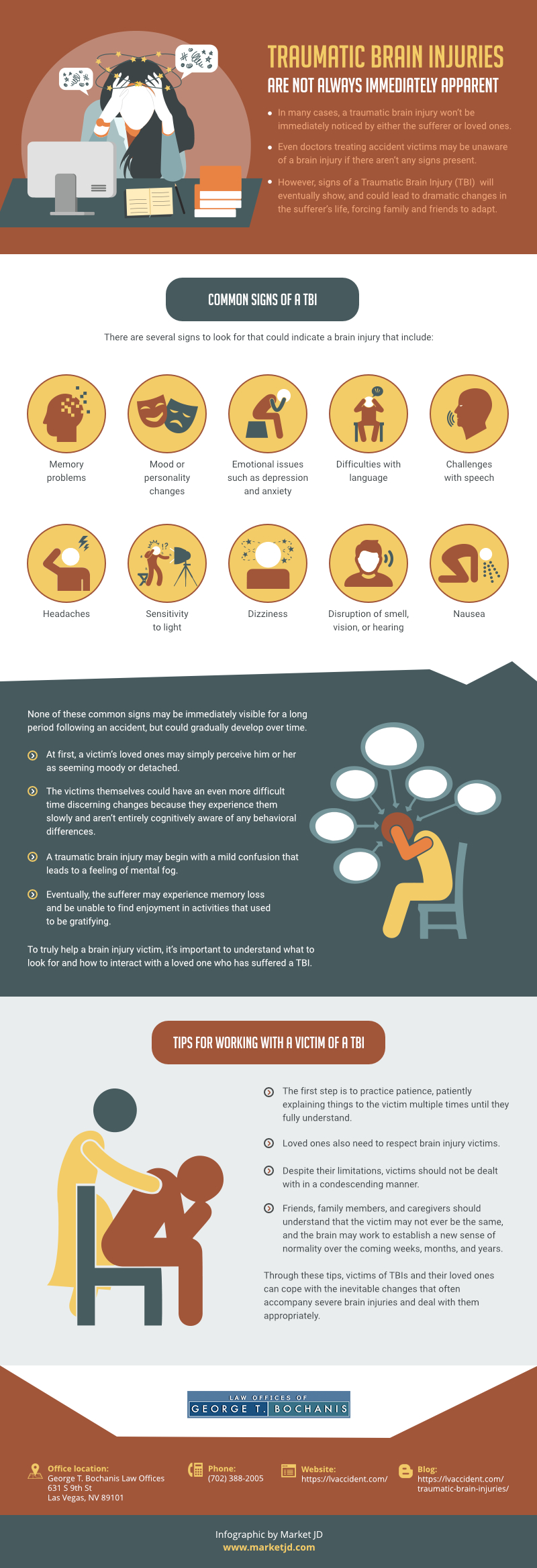In many cases, a traumatic brain injury won’t be immediately noticed by either the sufferer or loved ones. Medical responders may not even be aware of any symptoms of a TBI following a crash, and doctors treating accident victims may also be unaware of a brain injury if there aren’t any signs present.
However, signs of a TBI will eventually show, and could lead to dramatic changes in the sufferer’s life, forcing family and friends to adapt. There are certain signs to look for when a brain injury begins to become apparent.
(Article continues below infographic)

Common Signs of a TBI
There are several signs to look for that could indicate a brain injury, including memory problems, mood or personality changes, emotional issues such as depression and anxiety, difficulties with language, challenges with speech, headaches, sensitivity to light, dizziness, disruption of smell, vision, or hearing, and nausea.
None of these common signs may be immediately visible for a long period following an accident, but could gradually develop over time. At first, a victim’s loved ones may simply perceive him or her as seeming moody or detached.
The victims themselves could have an even more difficult time discerning changes because they experience them slowly and aren’t entirely cognitively aware of any behavioral differences. For instance, a traumatic brain injury may begin with a mild confusion that leads to a feeling of mental fog. Eventually, the sufferer may experience memory loss and be unable to find enjoyment in activities that used to be gratifying.
To truly help a brain injury victim, it’s important to understand what to look for and how to interact with a loved one who has suffered a TBI.
Tips for Working with a Victim of a TBI
The first step is to practice patience, tolerantly explaining things to the victim multiple times until they fully understand.
Loved ones also need to respect brain injury victims. Despite their limitations, victims should not be dealt with in a condescending manner.
Friends, family members, and caregivers should understand that the victim may not ever be the same, and the brain may work to establish a new sense of normality over the coming weeks, months, and years.
Through these tips, victims of TBIs and their loved ones can cope with the inevitable changes that often accompany severe brain injuries and deal with them appropriately.





